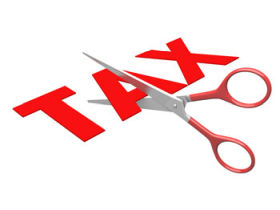Analytics, Banks, Budget, Financial Services, Latvia, Society, Taxation
International Internet Magazine. Baltic States news & analytics
Thursday, 25.04.2024, 11:18
43% of Latvians believe tax cuts would help increase budget revenue
 Print version
Print version |
|---|
Asked to indicate what, in their opinion, should be done to
increase budget revenue, 43% of respondents in the poll suggested cutting
taxes, and 41% said it was necessary to ensure a more investment-friendly
environment. A third of the surveyed people said that budget revenues could be
increased by clamping down on tax evasion, and 31% called for export-promoting
measures.
Also, 13% of respondents said budget revenues could be
raised by upping excise tax on alcohol and tobacco, and 1 % said higher taxes
would ensure higher budget revenue. At the same time, 7% of respondents had no
idea how to increase budget revenue.
Commenting the results of the survey, Valsts Kalnins, a researcher at
Providus center for public policy, said that most probably there was a
reasonable point behind the belief that lower taxes would motivate people to
pay them, but that reliance on such expectations would require very strong
trust.
“People have made a wise point that to increase budget
revenue, it is necessary to reduce taxes and create an investment-friendly
environment. I can agree with that, because a lot of ill-considered decisions
have been made in recent years,” said Janis
Grasis, a professor at the BA School of Business and Finance.
The Latvian Barometer survey conducted in September, polling
1,002 respondents aged 18 to 74 across Latvia.
Baltic International
Bank's Latvian Barometer is a monthly survey examining current processes in
areas of economic and social importance. In the first part of the survey,
respondents are asked a set of unchanging questions to pinpoint monthly changes
in the general mood of the public but the questions in the second part each
time deal with a different matter which is currently in the focus of the public
attention.








 «The Baltic Course» Is Sold and Stays in Business!
«The Baltic Course» Is Sold and Stays in Business!

